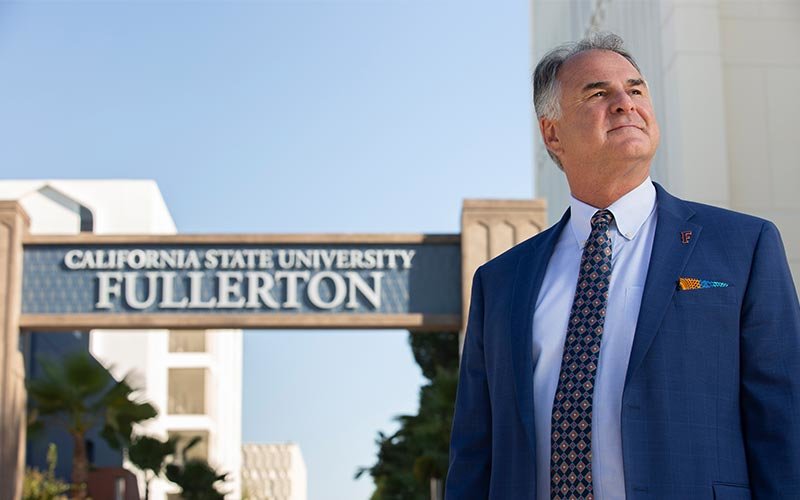
When President Fram Virjee looks across campus at the students — he knows that many of them, 57 percent to be precise, are the first in their families to attend college. He may also see a reflection of himself as he was the first in his family to go to college.
“I know what it’s like to be the first in your family to attend college,” he recently told an audience gathered for an Orange County Business Council Breakfast. “When you are the first, you create a legacy that not only benefits you but future generations,” he continued. “And we find that when one family member goes to college, others often follow — siblings, cousins, even parents! As we transform their lives, they will transform the lives of their families…and their communities.”
Virjee is committed to seeing that Cal State Fullerton remains a transformational university rather than a transactional one.
“I believe a transactional university is a place that provides the tools for students to become professionals,” he explained. “A transformational university is one where we not only provide these tools but truly transform lives. We have almost 40,000 students and last spring, we graduated more than 12,000 Titans.
“The graduates and their families are not the only beneficiaries. CSUF provides a huge pool of qualified employees to the Orange County marketplace. CSUF graduates are your employees, your clients, your customers, our civic leaders. An investment in CSUF is an investment in Orange County.”
In fact, 45 percent of CSUF graduates will stay in Orange County and 80 percent live within 50 miles.
“I don’t think we often get the credit we deserve,” he admitted. “We are an important economic engine of the region and I don’t think that many people are aware of this. Not only are we educating the future workforce, but 16,000 jobs are supported by the university and we generate more than $126 million annually in state and local tax revenue.”
He also noted that Fullerton is the third largest university in the state (behind USC and UCLA) and that plans for the campus over the next 15 years include creating an innovation center that will allow for interdisciplinary collaboration, developing an events center (for sports, conventions, etc.), and constructing a new engineering and computer science building, as well as a new science building.